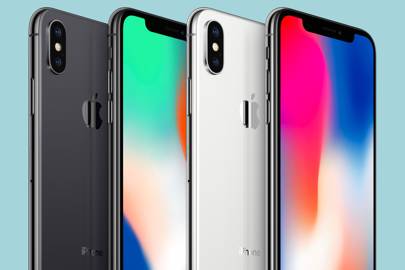Forget Apple vs Samsung, an even bigger patent war has just begun

It took seven years, but the battle over phone patents waged between Apple and Samsung is finally over. The two big phone makers have been fighting over key components of their devices – from wireless capabilities to the “rubber banding” of your screen display bouncing back when you scroll too far beyond its boundaries on an iPhone – since 2011. But this week a California district court declared that the litigation was over, with both sides reaching an out-of-court settlement.
The drawn-out battle encompassed almost every level of court in the United States, and stretched across the world. It began with Apple claiming Samsung infringed its patents and “trade dress” (design elements, including initially Apple’s claim that Samsung nabbed the look of its phone as “a rectangular product shape with all four corners uniformly rounded”).
A judge originally agreed to that and ordered the South Korean firm to pay Apple $1 billion in damages… which started a long fight, appeals and counter appeals, until this week’s ruling. But what was it really about?
Pick up your mobile phone and you hold in your hands the result of millions of man hours of work and hundreds of thousands of patents registered to a panoply of companies. “The number of patents in a phone is so huge that nobody has ever been able to count,” says Florian Mueller, founder of the FOSS Patents blog and an intellectual property activist. To perform a count, you’d have to look not only at phone patents but also hundreds of thousands or millions of software patents.
A tech giant like Samsung, Apple or IBM can register up to 5,000 patents every year - with engineers writing them “at a furious rate”, says Horace Dediu of Asymco, a mobile phone analyst. “IBM does this seriously. They just amass a huge arsenal of patents.” Apple alone has more than 75,000 patents and filed for over 2,200 more since the beginning of 2017. Samsung has filed for more than 10,000 patents in the last 18 months and in total has 1.2 million of them.
“My personal opinion is that this absolutely exorbitant number of patents you find in a phone shows that the hurdle for obtaining a patent is too low,” says Mueller. There should be more substantial investment behind every patent.
Crucially though, patents aren’t just important for protecting people’s inventions: they’re also a money-making tool. “Patents are one of these currencies that is always traded,” explains Dediu – or sold.
They are a tool used against opponents in a highly competitive industry. “If you have a patent, you can stop someone else shipping a product that contains that intellectual property,” says Dediu. “Generally, the rights are entirely held by the patent owner and those rights mean that an infringing product must be withdrawn from the market.”
The malicious use of patents to prevent competition rarely happens, but the sheer scale of the number of patents can stifle innovation. Mueller calls it a “patent thicket”. Companies can develop a new device or a new technology, then find themselves undone. “You inevitably – because there are so many of them – will be found to have infringed a patent,” he says. “That is a real problem for the industry.”
Patents can also used as a deterrent to stop people competing too closely with established names in the tech industry. And that, both Dediu and Mueller agree, is a worrying development. “Patents are starting to become an arms race,” says Dediu - and he’s worried about the outcome. “If the opponent is in the same business, then you have big talks or mutually assured destruction.”

Post a Comment